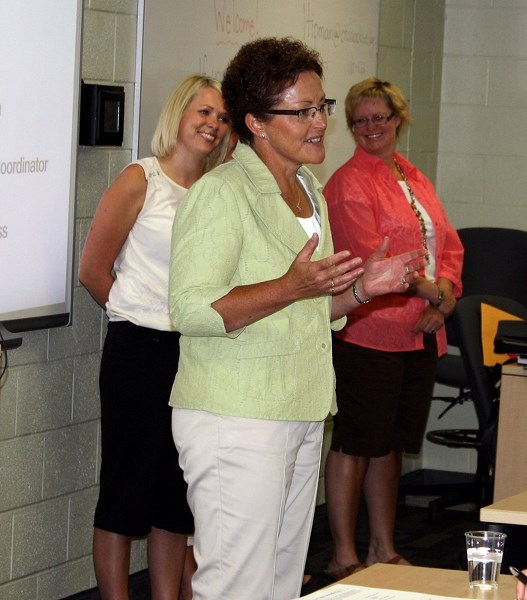The Chinook's Edge School Division is vigorously challenging the “tragic loss” of provincial government funding for outreach services to help special needs students in Central Alberta.
“It is going to impact many of our most vulnerable students because it's that money that targets supports for those students,” said Kurt Sacher, the division's superintendent of schools, whose board has taken the rare step of writing a letter of protest to Alberta Premier Dave Hancock about the cutback.
“The board does not typically write the premier, but that gives you a sense of how concerned our board is around this in what it's describing as a tragic loss of funding for some of our most vulnerable students.”
The Central Alberta Regional Collaborative Service Delivery (RCSD)
partnership, comprised of nine regional school boards – including Chinook's Edge, was developed several years ago with a mandate from the provincial government to provide cross-ministry services for a broad spectrum of students with special needs, which include the visually or hearing impaired, or those that require speech, language and/or communication supports.
However, the partnership, which works with the government ministries responsible for education, human services and health services, learned this year it's facing a $1.4-million loss of funding, or 20 per cent, from its expected $5.8-million budget for the 2014-15 school year.
Wanda Christensen, associate superintendent of student services, said this funding cut will impact about 200 Chinook's Edge students.
“These are our kids with the highest, most severe special needs. They may have physical challenges that require the support of occupational or physical therapists,” said Christensen.
“They may have medical concerns that require the support of a nurse. There is a wide range of services delivered through this funding, highly individualized for each child, and delivered by external specialists in the school so that each student can continue achieving their learning goals.”
Sacher said there are about 55,000 students enrolled in the nine partnering school divisions, with another 2,300 recently added. He said the current partnership model has not received extra government funding to accommodate the needs of additional students who require special needs supports.
“The real issue is the funding formula they (government) are using. We believe it is flawed,” said Sacher. “They have made a mistake in how they are applying a new formula.”
He said it's based on a previous formula used for inclusion funding, which the board has had previous difficulties with. “It just has not been sufficient so they are applying the same concepts,” said Sacher. “This is also what we challenged when we appealed the funding allotment.”
Sacher said that appeal has been sent to senior Alberta Education officials.
“We've already had a detailed video conference with them expressing our concern. They said they would re-evaluate it, look at it prior to the end of April,” said Sacher. “So we are hoping to hear some good news in the next few weeks because of that.”
Sacher said the issue could also create serious staffing challenges with the nine partnering school divisions in RCSD as it is now the hiring season to secure the highly specialized professionals qualified to accommodate special needs students.
“If they don't get word very soon they are going to lose an opportunity to secure high-quality, highly specialized staff,” said Sacher.



